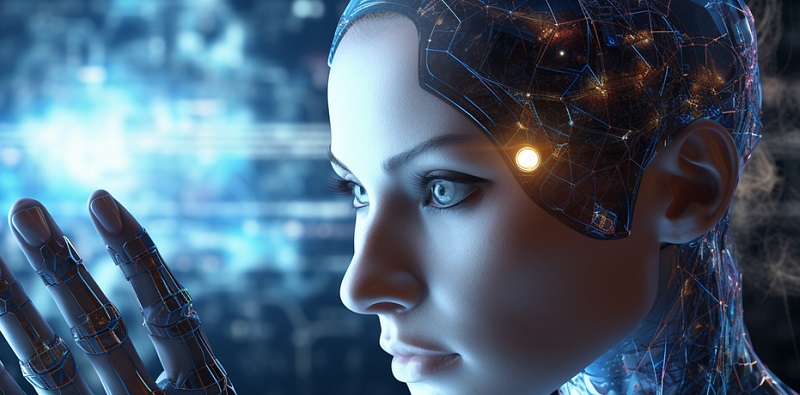Artificial intelligence (AI) systems have revolutionized industries worldwide, aiming to replicate human characteristics and processing power while surpassing human speed and constraints. With the ability to comprehend, identify, and resolve issues from structured and unstructured data, AI has emerged as a game-changer in knowledge labor automation, carrying the potential for a massive economic impact. However, the rise of AI also brings ethical concerns that demand careful consideration. This article explores the capabilities of AI, its economic implications, its role in healthcare, cybersecurity, service operations, and customer service, while delving into the ethical questions surrounding its deployment.
AI capabilities with data
One of the core strengths of AI lies in its ability to comprehend and analyze both structured and unstructured data. By harnessing the power of intelligent software systems, AI can automate knowledge work, leading to significant economic potential. McKinsey & Company predicts a staggering $5 to $7 trillion economic impact by 2025, facilitated by AI’s capacity to handle complex tasks previously limited to human expertise.
Economic impact of AI
The projected economic impact indicates the profound changes AI can bring to various industries. Intelligent systems that execute knowledge job activities from unstructured commands have the potential to reshape economies worldwide. By streamlining workflows and driving efficiency, AI enables organizations to optimize operations, reduce costs, and improve outcomes.
AI in healthcare
The healthcare industry stands at the forefront of AI-driven transformation. In medication discovery, AI plays a pivotal role in evaluating combinations of substances and procedures, accelerating the process and maximizing the potential to improve human health. Furthermore, by leveraging predictive analytics, healthcare professionals can forecast future outcomes, aiding in the selection of the most effective treatments for individuals with chronic illnesses or other health concerns.
AI in cybersecurity
The ever-evolving landscape of cybersecurity demands increasingly sophisticated solutions. AI rises to the challenge by offering a faster and more efficient approach to detecting online threats. In real-time, AI can identify abnormal or malicious credentials, detect brute force login attempts, monitor unusual data movement, and prevent data exfiltration. By minimizing false positives and leveraging contextual data, AI empowers organizations to proactively defend against cyber attacks.
AI in service operations
Robotic Process Automation (RPA) is a prime example of how AI automates routine tasks, freeing up human talent for more complex challenges. By streamlining service operations, organizations can enhance efficiency, cut costs, and deliver superior customer experiences. RPA eliminates human error, accelerates processes, and allows for continuous improvement, ultimately driving productivity and innovation.
AI in customer service
Chatbots, voice assistants, and messaging apps equipped with conversational AI have revolutionized customer service across various sectors. With round-the-clock availability, these AI-enabled tools provide instant support, automate processes, and enhance customer experiences. By leveraging natural language processing and machine learning algorithms, organizations can personalize interactions and offer tailored solutions, significantly improving customer satisfaction.
Ethical concerns with AI
While the benefits of AI are undeniable, it is crucial to acknowledge and address the ethical concerns inherent in its deployment. Algorithmic bias, the potential for discrimination or lack of fairness, must be carefully monitored throughout the development and implementation of AI systems. Human oversight and intervention are vital to ensure that AI remains aligned with ethical standards and societal values. Moreover, understanding the contextual nature of AI is critical to handling its potential impact responsibly.
Artificial intelligence has transformed industries, driving economic growth and empowering organizations to achieve unprecedented levels of efficiency and innovation. The potential impact of intelligent systems is vast, ranging from healthcare advancements to robust cybersecurity measures, streamlined service operations, and enhanced customer service. However, as AI continues to evolve, ethical concerns must not be overlooked. Ensuring responsible AI development and addressing algorithm bias are imperative. By harnessing the transformative potential of AI while upholding ethical standards, humanity can embrace the benefits of this groundbreaking technology and navigate its challenges towards a brighter future.

